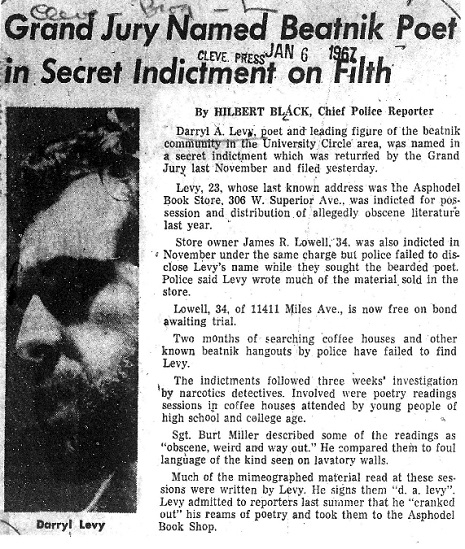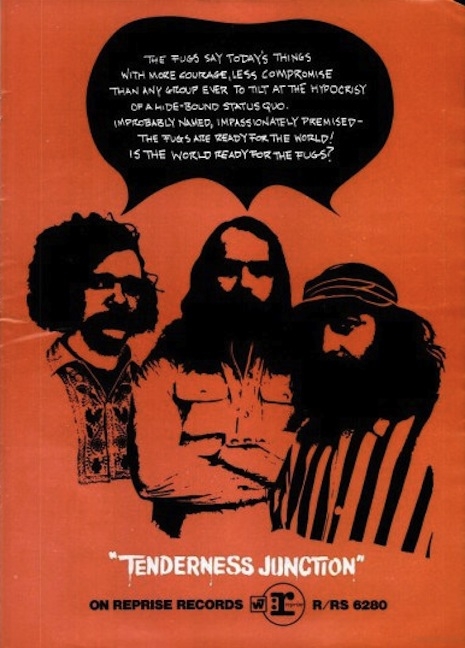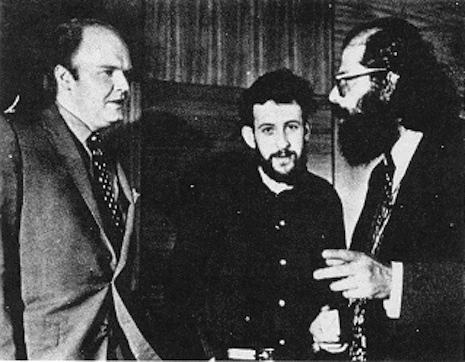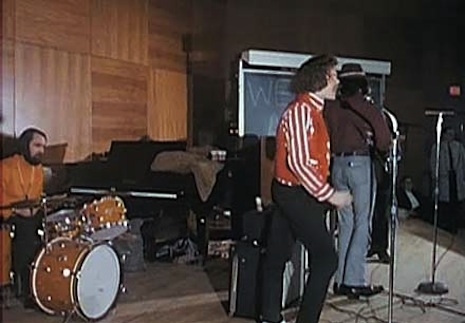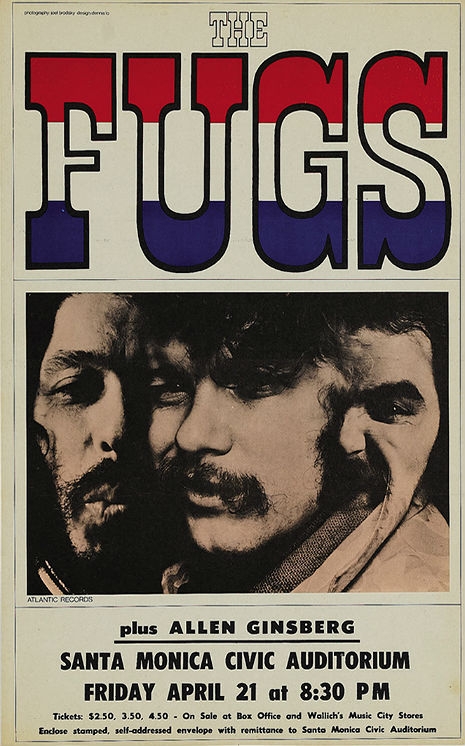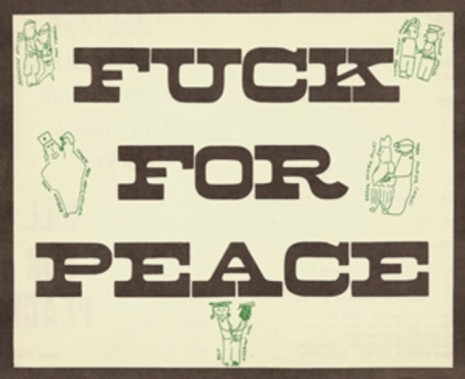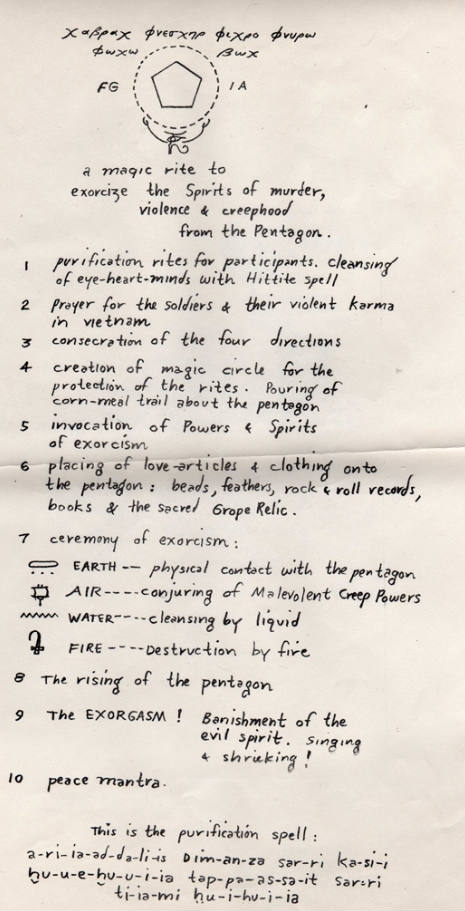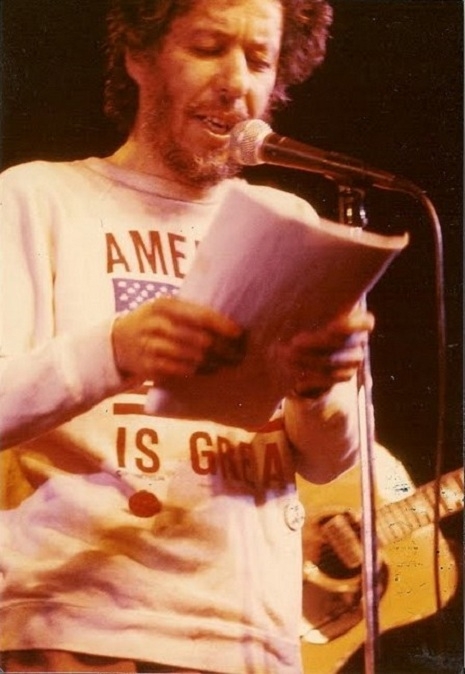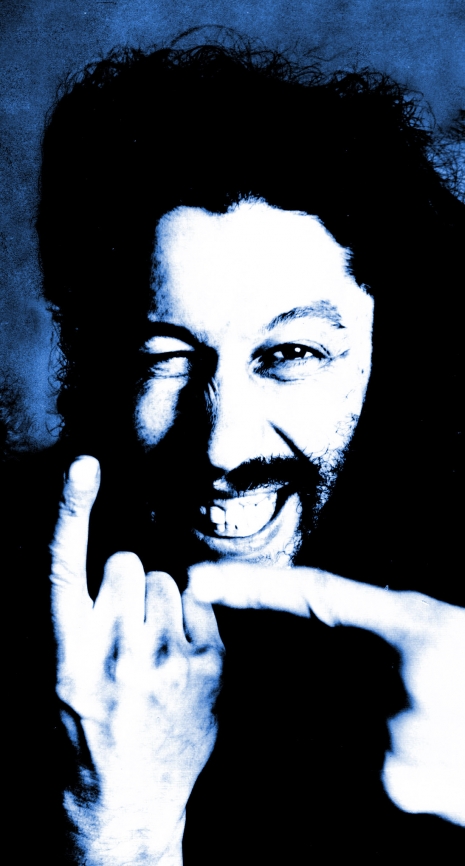
Call it “Freak Folk,” call it ”New Weird America,” or call it nothing since one-size-fits all genre taxonomy is rarely adequate to contain most art forms anyway, but there’s an identifiable strain of American independent singer-songwriter music that can draw a very direct lineage to some of the strangest expressions of the Mid-Century folk music revival that was sparked by the Smithsonian Folkways release of the utterly essential Harry Smith Anthology of American Folk Music. While late ‘50s traditionalists like Dave Van Ronk and the New Lost City Ramblers took very reverent cues from the Smith anthology, the early ‘60s produced the likes of Dylan and Baez, and after them, just straight-up Greenwich Village weirdos like the Fugs and the Holy Modal Rounders emerged to define a form of folk befitting the burgeoning psychedelic era. Those two bands had overlapping memberships and were also united by a gonzo approach. The Rounders tended to be more traditionally musical, while the Fugs were just utterly bereft of a single care for ANY convention—their heavily satirical lyrics could be unabashedly vulgar, their music could be fearlessly, purposefully tuneless and noisy (in 1964, mind you) and from a certain vantage point they can plainly be seen as a very early proto-punk band.
While those bands still have devotees over fifty years later, few artists are flying their flag quite like New York’s Jeffrey Lewis. We’ve told you about him before here on Dangerous Minds, in both of his guises as a folk singer and a comix artist. He’s been releasing music, mostly for the storied Rough Trade label, since 2001, and he’s been fortunate enough to have connected personally and creatively with HMR’s violinist Peter Stampfel and the Fugs’ larger-than-life lyricist/singer/co-figurehead Tuli Kupferberg, one of the Village’s most outrageous figures despite being pretty much twice everyone’s age—the Fugs were his first band, and he started it in his forties, after he’d already had a long career as a poet, activist, and provocateur. Actively creative even after a stroke in 2009, Kupferberg died at age 86 in 2010. Lewis has since been organizing annual concerts in his memory, and those concerts have led directly to his forthcoming album Works by Tuli Kupferberg (1923-2010)—a fun, boisterous and anarchic tribute that captures Kupferberg’s ethos well. We got Lewis talking about his relationship with early gonzo folk, with Kupferberg himself, and the new album.
Jeffrey Lewis: I have a deep love of ’60 weird stuff, since I was a teenager and I first discovered music. My first love was classic rock, the Rolling Stones, stuff like that, then I developed more and more of an interest in the weirder, more psychedelic side of ‘60s rock. As it generally happens when you’re a record nerd, you fall deeper and deeper into these different rabbit holes, and new doors start to open. But specifically talking about things like the Fugs and Holy Modal Rounders, that stuff has a different appeal, a purely regional element, in that it was the music of the neighborhood where I grew up, which is once again the neighborhood where I’m currently living after many years in other places. It’s the countercultural music of the ’60s Lower East side, and the Fugs especially were THE Lower East Side neighborhood band. And the Holy Modal Rounders to some degree, but the Fugs were more extreme, and more specific in talking about the neighborhood as well. There aren’t that many ‘60s bands that were that specific about their extremely local cultural neighborhood experience, and it just happened that one of the bands that was, was from my own neighborhood, so that combination—it was weird music, it was ‘60s music, and it was actually talking about the streets and the people that were, like my parents, my parents’ generation, the beatnik and hippie people of the Lower East Side. That was irresistible to me.
DM: Tuli Kupferberg in particular was such a fascinating figure, too, given his age at the time he started making music and the history he had before that. I understand you got to meet him and work with him before he passed?
JM: Yeah! I was a fan from afar for a number of years. He was often out and about—and here’s a great thing about New York City, as opposed to Los Angeles or other places where lots of famous people might live: New York City is a great equalizer because you’re not in your car all the time, isolated, you’re walking the sidewalks, you’re in the subway. So when you live here you see Patti Smith, David Byrne, Laurie Anderson, Richard Hell… they’re just there when you’re going to the supermarket, looking in an art gallery. That is part of why I got to connect personally with Tuli was that I would just see him at events, and he was such a recognizable figure, such a weird looking guy in his way, so striking, that he was just instantly recognizable to me. So first as a fan it was like “Oh my God, there’s Tuli Kupferberg across the room, should I talk to him?” Just being a groupie, essentially. The same way every time when I’d see Lou Reed or whatever, like should I bother him? But when it comes to people like Tuli or Peter Stampfel, they’re idols of mine, but they’re not mainstream celebrities at the level of like David Byrne, who obviously, to the average person, is much more famous.
So I could talk to them about what sort of stuff they were into, and they were approachable. Also I think it was easy to see that what I was doing, the music I was doing, was in a tradition of stuff they would have been into, our aesthetics were a match, so I wasn’t just some random fan giving them a CD. So one thing would just lead to another, so by 2005 I was getting Tuli and Peter to participate in recordings I was making, like having Peter come by and play some fiddle, or I would try to get Tuli to speak about something, just get his voice on a recording, and they were so open and welcoming, and you find connection. You see the books on each other’s shelves and you see things you’ve read too, stuff like that, it’s everybody’s dream, isn’t it? To morph from a fan into a friend? Like I think a lot of Michael Jackson fans or Harrison Ford fans would love to be those people’s friends. In my case, I was fortunate to be able to collaborate with some of my idols.
DM: You really do have an enviable track record of getting to work with your heroes.
JM: It helps to have accessible heroes—if I idolized Steven Spielberg it probably wouldn’t have happened!
Much more after the jump…







